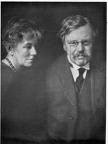
If anyone doubts that the original political belief of the ancient Catholic Gael was that same Christian Roman imperialism that has ever been the mark of Catholic Christianity since the Resurrection of the Lord, they need only listen to this wonderfully beautiful old Gaelic song,
Mo Ghile MearThis version is performed by
Mary Black, and is an Irish tribute to
Bonnie Prince Charlie,
Prince Charles Edward Stuart, the true King of Scotland, Ireland, and England (and France!) and true Prince of Wales, and who, as the commentary on this Youtube version rightly says, sought to put an end to religious persecution in
the Three Kingdoms.
He inspired fierce loyalty wherever he went, even tho', alas, the cause was, in the end, lost. The very motto of his family, the Royal Stuarts, was
Aymez Loyauté which is Old French for "Love Loyalty".
His beauty and gallantry could not fail to attract the warmest love and loyalty from the fair sex of all classes and some of the most famous songs about him were written by a woman,
Carolina Oliphant of Gask, Lady Nairne, a lyric poetess called by her countrymen "the Flower of Strathearn" on account of her own beauty. Born at Gask, in Strathearn, her family ever grew white roses, the symbol of the Stuarts and of legitimate monarchy, in profusion at Gask House.
Prince Charles Edward Stuart was not a Scottish or Irish nationalist, nor any kind of nationalist. He believed in the Three Kingdoms, with three separate parliaments but with one king, the ancient Christian Constitution of the British Isles which guaranteed the fundamental freedoms of every man and woman through the Christian religion, love of God and fellow man, and the laws of men based upon the law of God.
Scotland before 1603 had a separate king but James I and VI merged the two crowns in himself.
Ireland had been a patchwork of kingdoms with one High King,
Ard Rí na hÉireann, until
Pope Adrian IV, in his Bull
Laudabiliter (meaning "praise-worthily"), of 1155, placed Ireland under the rule of the Norman-Angevin King Henry II of England but still under the Pope, as a papal fief.
Pope Adrian made his Bull because of the disturbed condition of both Church and State in Ireland (testified to by no less an authority than
St Edmund Campion SJ in his
History of Ireland). Whether he was entitled to do so is a disputed question but what cannot be disputed is that the passage of time secured the new settlement, in accordance with canon, civil and moral law
. The Bull was recognised by Popes
Alexander III and
Lucius III and ever after by the Holy See.
 King Philip II of Spain and I of England and Ireland, and Queen Mary I (Tudor) of England and Ireland. Prince Charles Edward was the legitimate successor to Queen Mary.
King Philip II of Spain and I of England and Ireland, and Queen Mary I (Tudor) of England and Ireland. Prince Charles Edward was the legitimate successor to Queen Mary. Indeed, so disturbed was Ireland at the time that
Diarmaid Mac Murchadha (Dermot MacMorrough), King of Leinster, ousted by other war-like Irish kings and chiefs, invited
King Henry II to invade and pledged an oath of allegiance to him. As a further thanks for his reinstatement, MacMurrough's daughter Aoife (Eve) was married to
Richard de Clare, 2nd Earl of Pembroke, a Cambro-Norman lord, known colloquially as "Strongbow".
Thereafter, the English kings were also styled "Lord of Ireland",
Dominus Hiberniae, although Ireland continued to be ruled by its individual kings, like MacMorrough, in accordance with the devolved, distributist, subsidiarist feudal system.
After the Protestant Reformation
King Henry VIII illegally made himself King of Ireland by the Crown of Ireland Act 1542. As the Act was passed after Henry VIII had been excommunicated twice by the Papacy, the title "King of Ireland" was not recognised initially by Europe's Catholic monarchs.
However, once Mary became Queen and made England Catholic once more,
Pope Paul IV issued a papal bull in 1555 declaring
King Philip II of Spain and
Queen Mary of England to be King and Queen of Ireland. After Mary died in 1558, Philip made no claim to the crown, but the principle was established that the Crown of Ireland was recognized by the Holy See, from 1555, as a title of the English Crown.
 Here's a toast to Charlie's health...
Here's a toast to Charlie's health... was a Unionist, but not a parliamentary Unionist like the Whigs and soft Tories. He was for "Home Rule" and self-government, as it had always anciently been, for each of the kingdoms of Scotland, Ireland and England, joined as brother to each other under one king who must protect their liberties and rights, from the highest to the lowest in each kingdom.
He did not believe in the hegemony of the new rich men who had plundered the monasteries and stripped bare the poor but, instead, he believed in that great Christian chivalric principle that the greater and richer the man, the more he owed a duty to his servants, followers and to his country and particularly to the poor and needy. Hence he commanded a great and loyal following who fought fiercely for him to recover the Crown from those exploiters, the treacherous Whigs, the liars and cheats who had deposed his father,
King James II and VII, and tried to murder him, as they had murdered his great-grandfather,
King Charles I.
The uprising and attempted restoration by Bonnie Prince Charlie of his father, King James III and VIII, was called
The Jacobite Uprising This Jacobite Uprising of 1745 very nearly succeeded and Prince Charlie got as far as Derby in his military campaign.
 The Bonnie Prince
The Bonnie Prince However, he was fatally persuaded to turn back and lost the momentum and, eventually, the war, and the remnants of his army were butchered savagely by the grotesque Whig and plunderer, the
Duke of Cumberland, "Butcher" Cumberland, younger son of the usurping German Hanoverian,
George II.
The Prince roamed the Highlands, hidden by loyal men, cared for by
Flora MacDonald, and hunted by the Hanoverian government, until he eventually escaped to Europe where he was ever after in exile until his sad death.
Mo Ghile Mear was written by
Seán Clárach Mac Dhomhnaill (John Clare MacDonell), c.1691-1757, in loving memory of the Bonnie Prince. It is particularly to be noted that the song-writer refers to him as
"my Caesar", the title of
the Christian Emperor since Roman times and sometimes borrowed to refer to any Christian king.
Here are the lyrics in both Gaelic and English.
Mo Ghile Mear
Curfa
Sé mo laoch mo Ghile Mear
‘Sé mo Chaesar, Ghile Mear,
Suan ná séan ní bhfuaireas féin
Ó chuaigh i gcéin mo Ghile Mear.
Bímse buan ar buaidhirt gach ló,
Ag caoi go cruaidh ’s ag tuar na ndeór
Mar scaoileadh uaim an buachaill beó
’s ná ríomhtar tuairisc uaidh, mo bhrón
Ní labhrann cuach go suairc ar nóin
Is níl guth gadhair i gcoillte cnó,
Ná maidin shamhraidh i gcleanntaibh ceoigh
Ó d’imthigh sé uaim an buachaill beó.
Marcach uasal uaibhreach óg,
Gas gan gruaim is suairce snódh,
Glac is luaimneach, luath I ngleo
Ag teascadh an tslua ’s ag tuargain treon.
Seinntear stair ar chlairsigh cheoil
’s líontair táinte cárt ar bord
Le hinntinn ard gan chaim, gan cheó
chun saoghal is sláinte d’ fhagháil dom leómhan.
Ghile Mear ‘sa seal faoi chumha,
‘S Éire go léir faoi chlócaibh dubha;
Suan ná séan ní bhfuaireas féin
Ó cuaigh i gcéin mo Ghile Mear.
Seal da rabhas im’ mhaighdean shéimh,
’s anois im’ bhaintreach chaite thréith,
Mo chéile ag treabhadh na dtonn go tréan
De bharr na gcnoc is I n-imigcéin.
Chorus
He is my hero, my gallant darling
He is my Caesar, gallant darling.
I've had no rest from forebodings
Since he went far away my darling.
Every day I am constantly sad
Weeping bitterly and shedding tears
Because our lively lad has left us
And no news from him is heard alas.
The cuckoo sings not pleasantly at noon
And the sound of hounds is not heard in nut-filled woods,
Nor summer morning in misty glen
Since he went away from me, my lively boy.
Noble, proud young horseman
Warrior unsaddened, of most pleasant countenance
A swift-moving hand, quick in a fight,
Slaying the enemy and smiting the strong.
Let a strain be played on musical harps
And let many quarts be filled
With high spirit without fault or mist
For life and health to toast my lion.
Dashing darling for a while under sorrow
And all Ireland under black cloaks
Rest or pleasure I did not get
Since he went far away my dashing darling.
For a while I was a gentle maiden
And now a spent worn-out widow
My spouse ploughing the waves strongly
Over the hills and far away.
 Alas! To Lochaber no more....the Prince goes into exile - and over the water - forever more; but the loyal men shall be ever faithful to his memory.
Alas! To Lochaber no more....the Prince goes into exile - and over the water - forever more; but the loyal men shall be ever faithful to his memory. Aymez Loyauté!
+++
[Correggio. Noli me tangere. 1525]






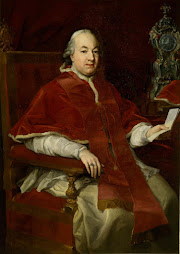

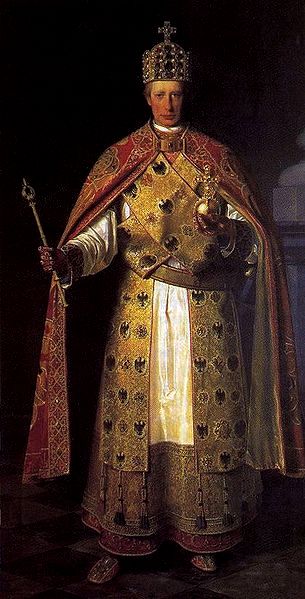




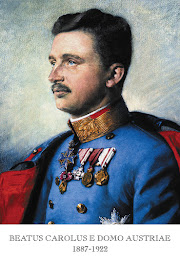

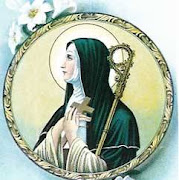


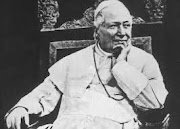
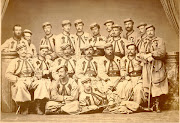
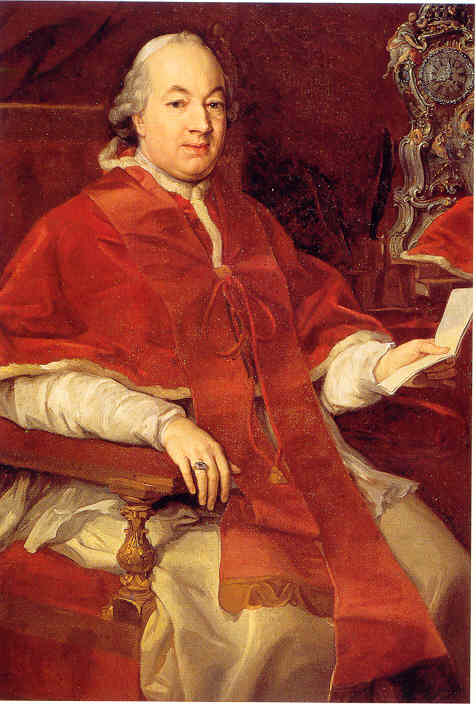
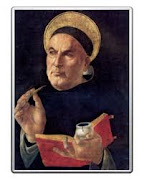

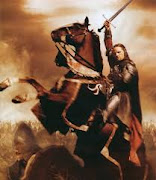

_-002.jpg/220px-Circle_of_Anton_Raphael_Mengs,_Henry_Benedict_Maria_Clement_Stuart,_Cardinal_York_(ca_1750)_-002.jpg)
